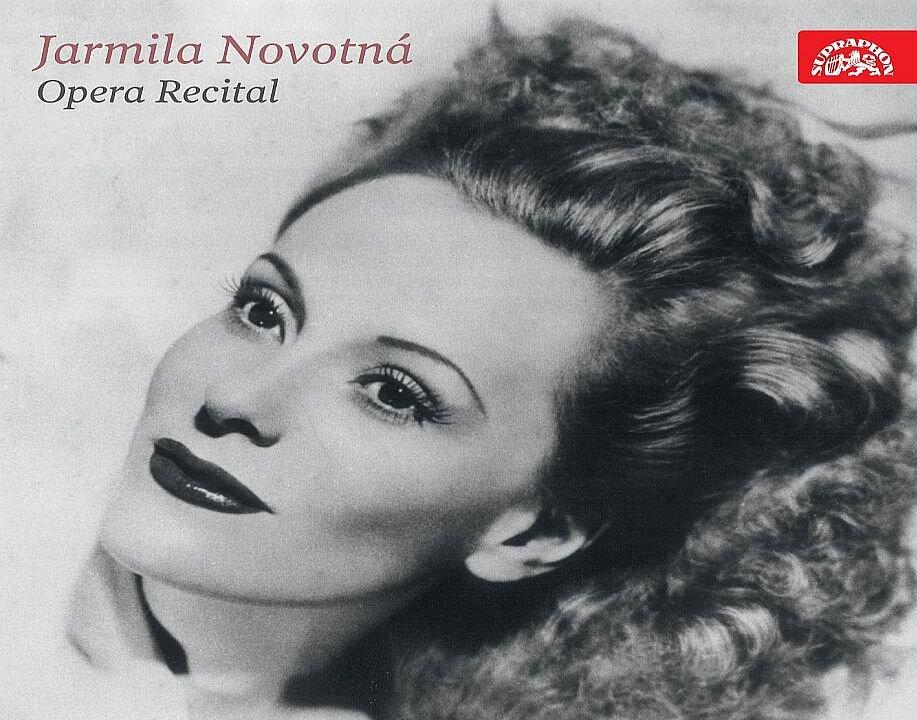Jarmila Novotná (1907–1994) was an opera star for 30 years, but she may be best known today for her non-singing roles in two Hollywood films. In the 1947 film, “The Search,” directed by Fred Zinnemann, Novotná gave a moving performance as a mother searching for her son after World War II. She also appeared as opera singer Maria Selka in the Mario Lanza hit, “The Great Caruso.”
A superb new CD, “Jarmila Novotná: Opera Recital” (on Supraphon), provides ample proof as to why she was regarded as one of the leading sopranos for such a long period.
She made her debut on the opera stage when she was only 17 years old and was a star in Europe before she came to America. Some of these recordings have never been previously released on CD and come from the singer’s private collection.
The first piece is “Una voce poco fa” from “The Barber of Seville” sung in Czech and taken from a 1933 film. In fact, because of the combination of her beauty, acting, and singing talent, she made movies in Europe before she fled from the Nazis.
It was then the practice in most countries (except for English-speaking ones) to perform operas in the native language. The second track is one of Pamina’s arias from “The Magic Flute” with the Vienna Philharmonic Orchestra conducted by Arturo Toscanini.
Novotná’s New York debut was in a concert conducted by Toscanini, and he brought her to meet Edward Johnson, the Met’s general manager, who signed her up immediately. She remained with the company for 16 years and retired at age 50, so she could care for her ailing husband.
The CD contains arias from some of Novotná’s signature roles, though from different recording sessions. Thus, she sings all three female parts (Olympia, Giulietta and Antonia) in Offenbach’s “Tales of Hoffman.” The first is in German from a 1930 film made in Berlin, and the latter two are in French, recorded in New York, the last with the renowned British conductor, Sir Thomas Beecham and Canadian tenor Raoul Jobin.
Her ability to delineate different characters while consistently producing a beautiful sound is demonstrated with arias from “The Marriage of Figaro,” in which she played the trouser role of Cherubino and from “Don Giovanni” where she is the wronged Elvira. Again, Novotná is singing with top-tier musicians: the basses Ezio Pinza and Alexander Kipnis and the conductor Bruno Walter.
One of her most acclaimed parts was Violetta in Verdi’s “La Traviata” and the CD includes four pieces recorded between 1940 and 1950. “E strano!: Ah, fors’ e lui,” is from a live matinee performance at the Met on November 29, 1941. This was notable in part because it was Jan Peerce’s debut with the company and his ardent singing is heard with her.
In his autobiography, “The Bluebird of Happiness,” Peerce recalled that he sang the role with many of the most famous sopranos but concluded, “The one I think of as Violetta is Novotná that afternoon.” He considered her “one of the better actresses who ever played the part” and she “was so good that she made everybody around her look good.”
The performers maintained their composure despite the fact that they had learned at the performance that the conductor with whom they had rehearsed had died suddenly two hours earlier.
Novotaná shows that she was also an ideal Puccini heroine, with two of Mimi’s arias from “La Boheme” (an endearing “Si, mi chiamano Mimi” and a third act scene with Martial Singher as Marcello) and “Vissi d’arte” from “Tosca.”
Novotná was proud of her Czech heritage but first was forced to leave because of the Nazis and then barred from returning by the Soviet Union. The CD ends with three Czech pieces: arias from Smetana’s “The Bartered Bride” and his “The Kiss,” and “The Song of the Moon” from Dvorak’s “Rusalka.” The last is a private recording from 1956 with Gibner King on piano.
The technical quality of the recordings varies but the singer’s artistry shines through on every track.
There is a note at the end of the liner booklet by George Daubek, Novotná’s son. He says that the CD is being released to mark the 20th anniversary of his mother’s death. In 2012, the Daubek and Leidl families formed the Association of Chateau Liten, named for the singer’s former residence. The association is reconstructing the cultural monuments in the castle and holds an annual Jarmila Novotná Prize at the Antonin Dvorak International Competition.
Barry Basis has been a music, theater, and travel writer for over a decade for various publications.






